the impact of nationalism and militarism on japan's foreign policy: the origins, 1853–1930 Notes
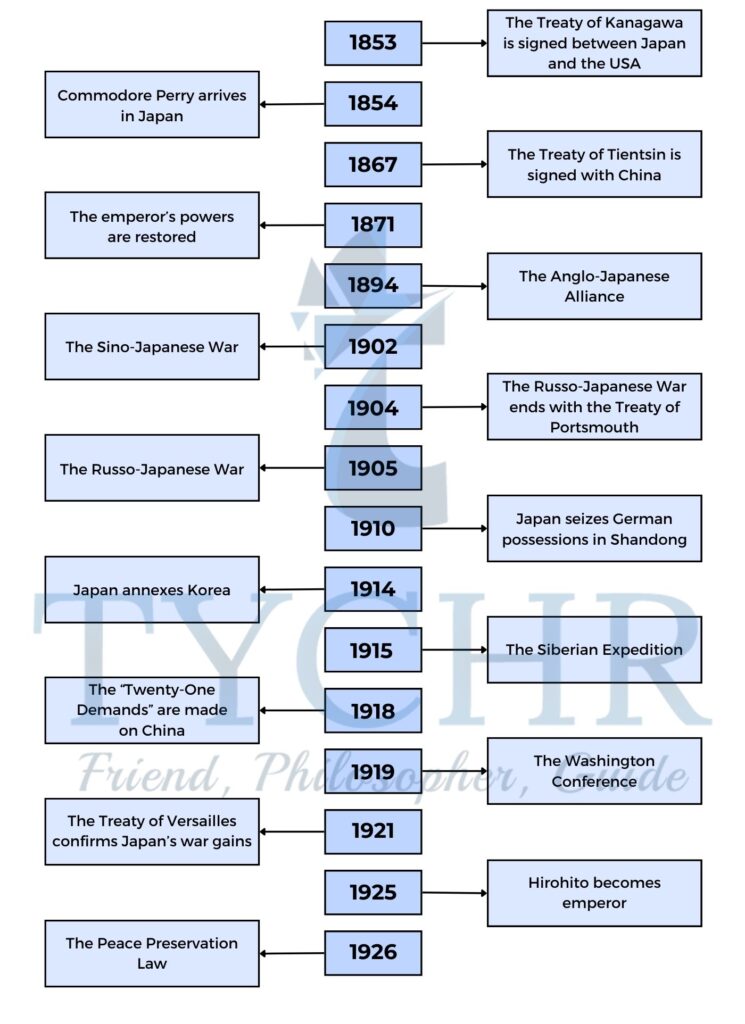 Origins of Japanese nationalism and militarism
Origins of Japanese nationalism and militarism
- Growth of Japanese nationalism:
- Determination to transform into a Western style power
- Belief in it’s destiny as a leader of Asia
- To stay ahead of other countries in securing markets in East Asia
- The need for strategic security
- The actions of Western powers
- Support for militarism and expansionism
- Nationalism became linked with militarism in Japan because its expansion was dependent on the military’s actions and political decisions.
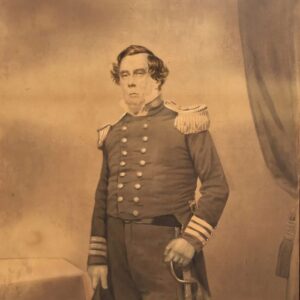
Fact:
The Shogun had isolated Japan from the world in order to protect the people from Christianity. Therefore nationalism began in the second half of the 19th century.
- Commodore Mathew Perry (in picture) arrived in Japan in 1853 with a fleet of “Black Ships”.
- Tokugawa Yoshinobu signed the Treaty of Kanagawa with the USA in 1854.
Fact:
The Treaty is also called Perry convention (March 31, 1854), Japan’s first Treaty with a Western Nation.
Impacts of this treaty:
- Political power returned to the Meiji or “enlightened” emperor.
- Modernisation of Japan and dismantling of the feudal system.
- Major reforms took place in industry, education, fashion and German military tactics were adopted.
- A new navy was established with the help of the British.
- Promotion of national unity and patriotism. (Popular slogan “rich country, strong military”)
- Japan defeated China in the Sino-Japanese War of 1894-95:
- The Treaty of Shimonoseki gave the Pescadores Islands, Formosa and Liaodong Peninsula to Japan.
- A commercial treaty was also negotiated with China, who was forced to open up more ports.
Fact:
The treaty is also known as the Treaty of Bank in China, signed on April 17, 1895.
The effects of the First Sino-Japanese War on nationalists and militarism
- The Triple Intervention takes place and Japan is forced to give up the Liaodong Peninsula by Germany, Russia and France.
- Russia took the Peninsula for itself.
- Germany secured control over Shandong Province.
- France and Great Britain took advantage of the weakened China and seized port cities.
- Military success and frustration of giving in to Western power encouraged nationalism.
- Japanese military expanded in 1895 and 1905.
- Ministerial representatives of the army and navy were drawn from the upper ranks of the armed forces.
- The Amur River Society was set up to promote Japanese expansion on the mainland.
Japan after 1900
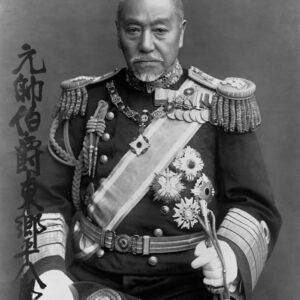
- Japan signed the first military alliance known as the Anglo Japanese Alliance in 1902.
- Japan attacked Russia in 1904 due to clashing interests over Korea and Manchuria.
- The Russian fleet of ships was defeated by Admiral Togo.
Fact: Togo made a maneuver called “crossing the enemy’s T”i.e., he turned his column across the Russian line of advanceand destroyed 33 out of the 35 Russian ships.
- Manchuria’s importance to Japan:
- Area of China closest to Japan and four times larger than Japanese islands
- Agriculturally rich with mineral resources improved opportunities
- Living space for Japanese population
- Russians were forced to accept the Treaty of Portsmouth.
- Japan gained control of Korea and South Manchuria, alongwith railway rights.
Fact:
The Treaty of Portsmouth was a peace settlement signed at Kittery, Maine, in the U.S.
Benefits of the First World War for Japan
Japan declared war on Germany and seized its military bases on the Shandong Peninsula in 1914.
- Japan issued China with the “Twenty One Demands”.
- Economically, Japan supplied goods to the Allies and to Asian markets where the Allies failed.
- Japan became more self-sufficient by developing industries for goods previously imported.
- The Bolshevik Revolution happened in Russia in 1917.
- Japan sent 70,000 men to support the Whites in the Russian Civil War against the Red Army of the Bolsheviks.
- Japan was defeated and faced inside opposition for losing Japan’s prestige.
Results of the First World War for Japan
- Japan secured the German Pacific islands.
- It established itself as an economic power over the Asian mainland and main naval power in the Western Pacific.
- However, it failed to get racial equality clauses included in the Charter of the League of Nations.
Fact:
The 1924 Immigration Act discriminated against Japan by making it the only country not to be allowed any quota of immigrants into the USA.
Japan in the 1920s
- Japan changed to a foreign policy of internationalism influenced by Shidehara Kijuro. (in picture)
- Americans insisted that the Anglo-Japanese Alliance of 1902 be replaced by a Four Power Treaty.
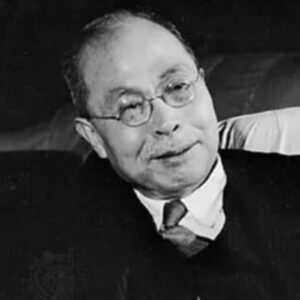
Shidehara Kijuro - A Nine Power Treaty was signed between China, Belgium, Italy, Netherlands, Portugal, Britain, Japan, USA and France.
- Japan returned the German concessions in Shandong.
- Five Power Naval Treaty restricted competition by setting a ratio of 5:5:3 for Britain, the USA and Japan respectively.
- The above three treaties were named the Washington Treaty System.
- Taisho democracy was established under emperor Taisho’s reign:
- The prime minister was from one of the two political parties that controlled the Diet.
- The electorate was extended until, in 1925, all adult males were given the vote.
- Society became more open and mass media more influential.
- Prime Minister Hara’s government lasted till 1921 and led Japan into the League of Nations.
Problems faced by Japan in the 1920s
- A fragile democracy:
- Financial scandals, election law violations eroded public support
- Links of parties with landlords and big businesses (zaibatsu) led to more suspicions
- There was a fear of left-wing radicalism
- The Peace Preservation Law was established in 1920, it was aimed at the Communist Party.
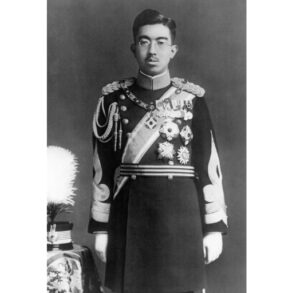
Emperor Hirohito - Opposition to Shidehara’s internationalism and the growing influence of the military on foreign policy:
- Conservative groups questioned Shidehara’s international approach
- USA passed a bill limiting immigration and specifically excluding “Asiatics”, offending Japan
- After Emperor Taisho died, Emperor Hirohito (in picture) was celebrated as the living god
- A growing economic crisis:
- Unemployment and industrial unrest developed in 1921
- Japan’s docks were paralyzed by a strike
- There was a large divide between cities and rural areas
- Farmers suffered from the falling price of rice
- Political worker’s organizations were suppressed by the police
- The real economic crisis came after the global depression
Role of political instability in China in encouraging Japanese nationalism before the 1930s
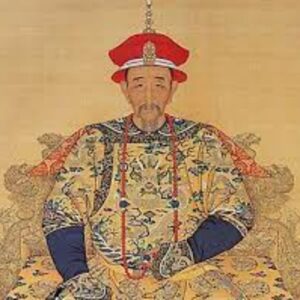
- China had been forcibly opened up for trade by the West.
- China became a semi-colonial country.
- It faced defeat by the British in the Opium Wars (1839-42 and 1856-60).
- European powers gained economic and military privileges over Chinese soil.
- China was at the mercy of other powers backed up by “gunboat diplomacy” or armies.
- Christian missionaries flooded China.
- A revolution in China ended the Manchu dynasty. King Jiaqing of the Manchu dynasty. (in picture)
- The main political force in China was the Guomindang Nationalist Party led by General Jiang Jieshi.
- There was rivalry between them and the Communist Party of China which was set up in 1921.
- Japan thought that the power of the European nations on China would threaten its’ security.
- Japan wished to achieve equality with the West and that meant acquiring more colonies.
Acronym sheet for revision
Some important points can be retained easily with the help of these short forms.
Origins of Japanese nationalism and militarism WWSSDM | Japan in the 1920s (4+5=9) – Washington Treaty System |
SPY | |
The effects of the First Sino-Japanese War on nationalists and militarism GRTF | Problems faced by Japan in 1920s FUZPIE |
E-Economic crisis | |
Japan after 1900 RAT JAM | Role of political instability in China in encouraging Japanese nationalism before the 1920s SEMO |

